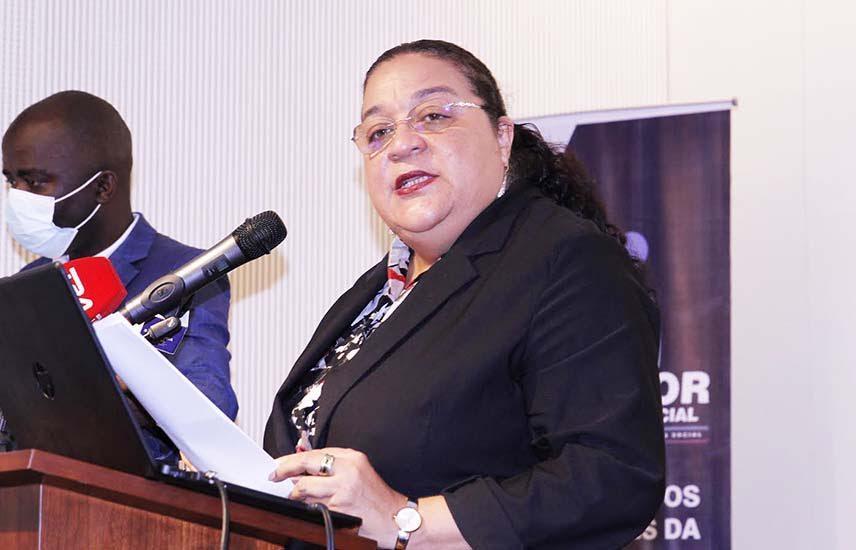Africa-Press – Angola. The National Institute of Social Security (INSS) announced, this Monday, in Luanda, the creation of new schemes, to cover and attract more workers in the Obligatory Social Protection (PSO).
According to the Minister of Public Administration, Work and Social Security, Teresa Rodrigues Dias, these are the regimes for employees, economic activities that generate low income, the legal regime of mandatory social protection for professional sports practitioners and the legal regime of social protection of insured persons without employment.
According to the official, that the balance of the sector in the five-year period 2018-2022, in the same vein, Decrees n.o 38/08, and n.o 42/08, which established the regime for employees and the regime for self-employed workers, respectively.
“It is important to highlight the introduction of the modality of self-employed workers, of activities that generate low income, with an applicable contribution rate of 50% lower”, underlined the official.
He made it known that in order to bring Social Security services closer together, the figure of social security mediators was introduced, with the role of facilitating and stimulating the relationship between Social Security and taxpayers, policyholders and even pensioners.
The minister explained that within the scope of the organization and functioning of the managing entity of the PSO, the INSS, structuring advances were also noted, among which, the freedom given to pensioners to freely choose the bank from which they intend to receive their social benefits, the establishment of the electronic payroll, as the only means of declaring salaries and introducing the payment of contributions via the Single Reference for Payment to the State (RUPE).
Finally, he mentioned the adequacy of the organic structure of the INSS, to better respond to the dimension of its mission, through the approval of Presidential Decree n.o 232/21, of 22 September.
In order to streamline the processes of collection and settlement of debts to Social Security, as well as the regulation of the Management of Technical Reserves of the PSO, he said that the Presidential Legislative Decree establishing the Legal Regime for Settlement and Collection of Debt of Taxpayers and Beneficiaries to Management Entity of Compulsory Social Protection.
This “package” also includes the Presidential Decree approving the Regulations for the Management of Technical Reserves and Assets of the National Institute of Social Security, respectively.
Between 2020 and 2021, Social Security was present alongside Taxpayers and Policyholders, enforcing measures that stimulated and facilitated the maintenance of jobs.
“I am referring to the measures inserted in Presidential Decree n.o 98/20, of April 9, which established the Immediate Measures to Relieve the Negative Economic and Financial Effects Caused by the Covid-19 Pandemic and in Presidential Decree n.o 12 /22, of 17 January, Legal Regime of Social Security Measures to Encourage the Hiring of Unemployed Citizens, Young People, People with Disabilities and Promotion of Voluntary Settlement of Social Security Debts.
In the field of Information Technologies, he said it was important to underline the scope of sovereignty in terms of data management and information technology by the INSS, since yesterday all technology parks and databases are available and controlled by society.
Within the scope of the recovery of PSO assets, he highlighted the reintegration of important assets into the assets of their legitimate owner, Social Security.
“I am speaking, specifically, of the Luanda Medical Center Building, Consolação Building, Sapiens Institute, Kings Towers, Hotel Monalisa and Eucaliptos Buildings. It should be noted that all these assets are fully operational and constitute a great asset for Social Security”, he explained.
Under the motto “Discussing the paths and progress of Administration, Work and Social Security” the National Meeting on Public Administration, Work and Social Security counts on the participation of members of the Executive, social partners, academia, journalists, various organizations and individuals that make up civil society, as well as foreign entities that are partners in the sector.
At the meeting, topics such as “Public Administration Reforms”, “The Role of Vocational Training in Entering the Labor Market”, “Economic Growth, Employment and Income: the challenges in the African region for socio-economic prosperity” are being debated at the meeting. of current and future generations” and “Challenges of sustainability, expansion and adequacy of Social Security”.
For More News And Analysis About Angola Follow Africa-Press






